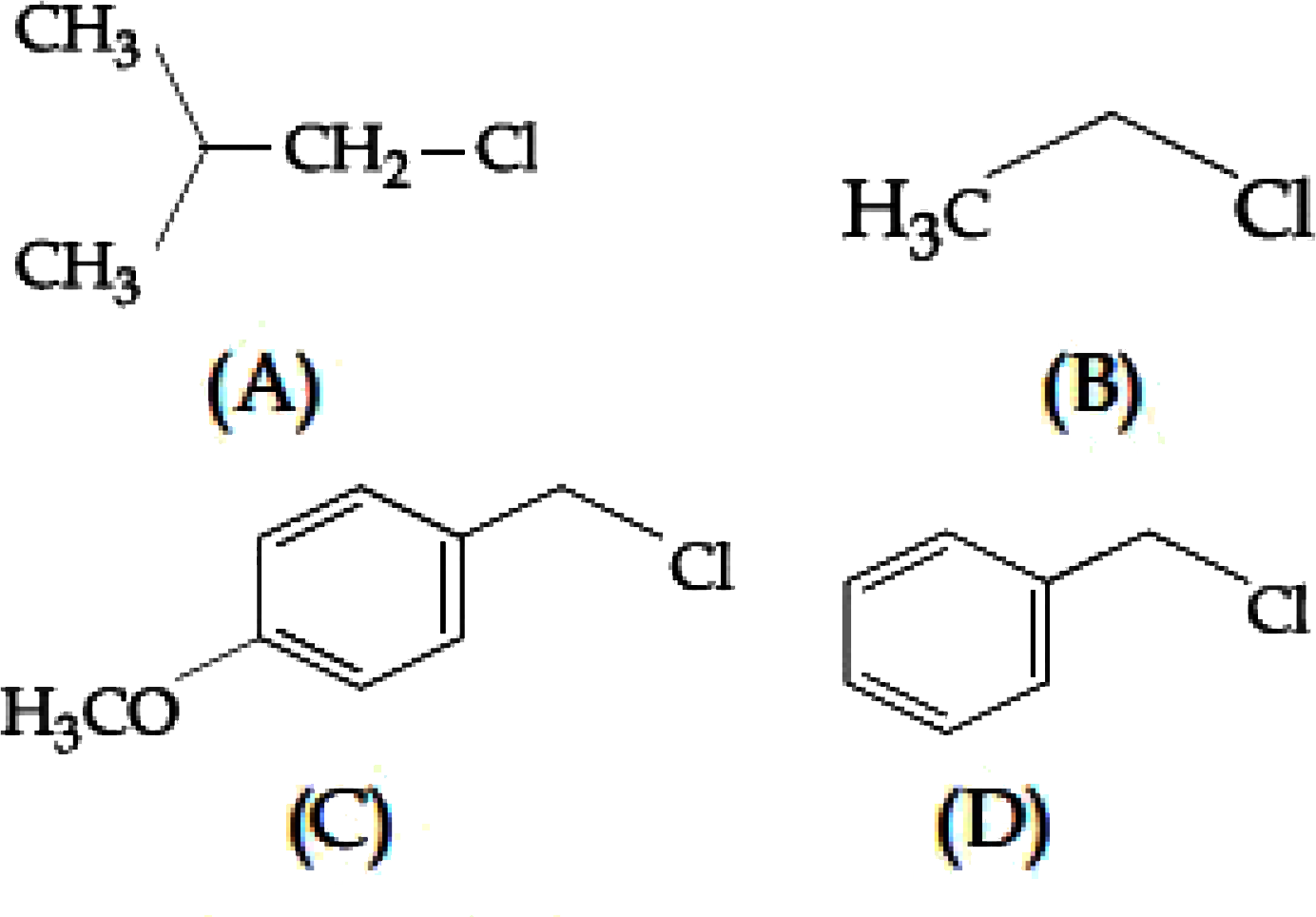Increasing rate of SN1 reaction in the following compounds is


(I)<(II)<(III)<(IV).
(II)<(I)<(III)<(IV).
(I)<(II)<(IV)<(III).
(II)<(I)<(IV)<(III).
The correct Answer is:A
Rate of SN1α stability of carbocation.
Wo, order will be (II)<(I)<(III)<(IV).
Topper's Solved these Questions
- JEE MAIN REVISION TEST - 28BOOK - VMC MODULES ENGLISHCHAPTER - JEE MAIN REVISION TEST - 28EXERCISE - CHEMISTRY (SECTION-2)
5 Videos
- JEE MAIN REVISION TEST - 27 - JEE -2020BOOK - VMC MODULES ENGLISHCHAPTER - JEE MAIN REVISION TEST - 27 - JEE -2020EXERCISE - CHEMISTRY (SECTION 2)
5 Videos
- JEE MAIN REVISION TEST - 29 (2020)BOOK - VMC MODULES ENGLISHCHAPTER - JEE MAIN REVISION TEST - 29 (2020)EXERCISE - CHEMISTRY
25 Videos
Similar Questions
Knowledge Check
Rate of SN2 reaction is :
 A(B)>(A)>(C)B(C)>(A)>(B)C(A)>(B)>(C)D(A)>(C)>(B)
A(B)>(A)>(C)B(C)>(A)>(B)C(A)>(B)>(C)D(A)>(C)>(B)SN1 reaction is fastest in
ACH3CH2BrBCH3−CH∣Cl−CH3CCH3−CH3C∣∣CH3−ClDCH3−CH∣CH2∣CH3−ClRate of SN1 reaction is :
 AS>Q>R>PBS>R>P>QCP>Q>R>SDS>R>Q>P
AS>Q>R>PBS>R>P>QCP>Q>R>SDS>R>Q>P
Increasing order of reactivity of the following compounds for SN1 subsitution is:

View SolutionWhich of the following compound(s) contains(s) N-N bond?
View SolutionIncreasing order of reactivity of the following compounds for SN1 substitution is :

View SolutionAliphatic nucleophilic substitution is mainly of two type SN1 and SN2.SN2 reaction proceed with strong nucleophile in polar aprotic solvent. 3∘ halides do not give SN2 reaction. Inverted products are obtained in this reaction and mechanism of reaction occurs through the formation of transition state.
SN1 reaction proceed through the formation of carbocation in polar aprotic solvent. Solvent itself acts as nucleophile in this reaction. Racemization takes place in SN1 reaction.
Which of the following compounds will give SN1 reaction?
View SolutionWhich of the following compounds will give SN1 reaction?
View Solution

_2019_CBT4_E01_003_Q01.png)
_2019_CBT5_E01_001_Q01.png)
_2019_CBT5_E01_001_Q02.png)
_2019_CBT5_E01_001_Q03.png)
_2019_CBT5_E01_001_Q04.png)